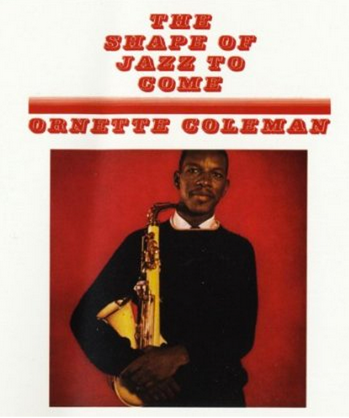Nazi Goring
Menu from a restaurant on Wudaoying Hutong 五道营胡同 near Yonghe Gong 雍和宫 (Lama Temple) that left James Bradbury completely baffled last summer:
Read the rest of this entry »
Menu from a restaurant on Wudaoying Hutong 五道营胡同 near Yonghe Gong 雍和宫 (Lama Temple) that left James Bradbury completely baffled last summer:
Read the rest of this entry »
David Zweig, "The facts vs. David Brooks: Startling inaccuracies raise questions about his latest book", Salon 6/15/2015 ("Factual discrepancies in the NYT columnist's new book raise some alarming questions about his research & methods"):
For at least the past four years David Brooks, the New York Times columnist, TV pundit, bestselling author and lecture-circuit thought leader, has been publicly talking and writing about humility. Central to his thesis is the idea that humility has waned among Americans in recent years, and he wants us to harken to an earlier, better time.
One of the key talking points (if not the key talking point) cited by Brooks in lectures, interviews, and in the opening chapter of his current bestseller, “The Road to Character,” is a particular set of statistics — one so resonant that in the wake of the book’s release this spring, it has been seized upon by a seemingly endless number of reviewers and talking heads. There’s just one problem: Nearly every detail in this passage – which Brooks has repeated relentlessly, and which the media has echoed, also relentlessly — is wrong.
Read the rest of this entry »
From Bob Ladd:
I just drove through the general area of Luxembourg/Lorraine – one of the places where French and Germanic have been in close contact since the Middle Ages – and could couldn't help noticing dozens of place names ending in -ange (Dudelange, Hettange, Differdange, Hayange, Hagondange, Aubange, Redange, Useldange, and many more) all within a relatively small area. I've tried to come up with some Germanic town name component that could have been gallicized as -ange, but I've drawn a blank. Does any reader know the source of these names?
Read the rest of this entry »
When I first started learning Mandarin in 1967, one of the things that troubled me most about Chinese grammar was the fact that when I wanted to say "He's fine / good / well", I couldn't just say tā hǎo 他好 ("he [is] good"), I had to say tā hěn hǎo 他很好 ("he [is] very good", but without really meaning the "very". That bothered me, because I couldn't understand the function of hěn 很 in the simple sentence tā hěn hǎo 他很好 ("he [is] very good"). My teachers told me not to worry about it, that hěn 很 in these sentences didn't really mean anything.
At least I wasn't saying *tā shì hǎo *他是好 (*"he be good") or *Tā shì hěn hǎo *他是很好 (*"he be very good") like some of my fellow students, who felt the need to insert the copular "is" shì 是, even though hǎo 好 by itself is an adjectival / stative verb, i.e., "is good".
Read the rest of this entry »
 In the neighborhood where I'm staying in Paris, one of the most common graffiti is a blue croix de Lorraine, sometimes with associated text. The cross is of course a religious and nationalistic symbol, and the text is generally interpretable as anti-immigrant. (Click on the image to see a larger version, with more context.)
In the neighborhood where I'm staying in Paris, one of the most common graffiti is a blue croix de Lorraine, sometimes with associated text. The cross is of course a religious and nationalistic symbol, and the text is generally interpretable as anti-immigrant. (Click on the image to see a larger version, with more context.)
Read the rest of this entry »
 Ornette Coleman died this morning at the age of 85.
Ornette Coleman died this morning at the age of 85.
Here's the start of his composition Peace, from the 1959 album The Shape of Jazz to Come:
Audio clip: Adobe Flash Player (version 9 or above) is required to play this audio clip. Download the latest version here. You also need to have JavaScript enabled in your browser.
The other musicians are Don Cherry (cornet), Charlie Haden (bass), and Billy Higgins (drums).
In 1959, one of the local delinquents that I hung out with was a jazz enthusiast, who praised Coleman to me and got me to buy the album. If you don't know Coleman's music, let me urge you now, 56 years later, to go buy a copy in his memory.
Read the rest of this entry »
James Fallows has been superintending an interesting discussion at the Atlantic about how strange early twentieth century American announcers sound to us today (There are five articles in the series so far, listed with links here). The comments on his articles suggest that we need make certain distinctions.
Read the rest of this entry »
At the Atlantic:
"Language Mystery Redux: Who Was the Last American to Speak This Way?", 6/6/2015
"That Weirdo Announcer-Voice Accent: Where It Came From and Why It Went Away", 6/7/2015
"The Rise and Fall of Announcer-Speak, Class War Edition", 6/9/2015
"American Announcer-Speak: The Origin Story", 6/9/2015
"Announcer-Speak: The Video Highlights Reel", 6/11/2015
Journalists keep repeating the same bunkum about "Chinese" having 1.197 or even 1.39 billion or some other ridiculously large number of speakers. Countering a Washington Post article, I debunked this notion in "Maps and charts of the world's languages" (5/1/15).
Read the rest of this entry »
Several people have written to me about the obituaries for Vincent Musetto, the author of the famous NY Post headline "Headless Body in Topless Bar". My favorite is by Margalit Fox ("Vincent Musetto, 74, Dies; Wrote ‘Headless’ Headline of Ageless Fame", NYT 6/9/2015), who points out that
The corresponding headline in The New York Times that day proclaimed, genteelly, “Owner of a Bar Shot to Death; Suspect Is Held.” Headlessness was not mentioned until the third paragraph; toplessness not at all.
Read the rest of this entry »
Last week (6/5/15), we examined the fantastic calligraphy on a dress created by the great French fashion designer, Christian Dior (1905-1957), that is currently on display at the Metropolitan Museum of Art:
"Christian Dior's 'Quiproquo' cocktail dress and the florid rhubarb prescription written on it"
During the course of the discussion carried on in the comments to the post, many fascinating details about the dress and its former owner were brought to light.
I am pleased to report that two members of the staff at the Met have kindly provided additional information that sheds further light on this most impressive cultural artifact.
Read the rest of this entry »
Today's SMBC:
Click on the image (or go to the SMBC site) to see the Descriptivist and the Pragmatist…